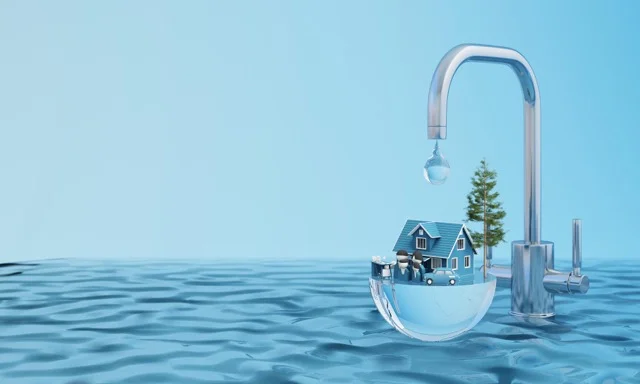The Buzz on Reclaim Waste
The Buzz on Reclaim Waste
Blog Article
All about Reclaim Waste
Table of ContentsThe Best Strategy To Use For Reclaim WasteThe Facts About Reclaim Waste RevealedA Biased View of Reclaim Waste8 Simple Techniques For Reclaim WasteNot known Facts About Reclaim Waste
Discover the kinds, occurrences, and types of fluid waste. Residential sewer waste refers to the waste and items from a residential sewage-disposal tank. This kind of waste is produced by people in houses, schools, and other buildings. This only includes septic systems that have a drain field. The proper administration and disposal of domestic sewer waste require fluid waste to be moved to a sewer therapy plant where the appropriate techniques and tools are put on purify and get rid of waste.
Industrial waste commonly consists of possible threats, such as flammable materials or a combination of liquid and solid waste products, and requires a much more sophisticated and detailed disposal procedure. The disposal of commercial waste typically entails the filtering of waste prior to transport to make certain risk-free and appropriate disposal. Hazardous waste is created from by-products and overflow of industrial procedures and production.
This sort of waste can not utilize the same sewer monitoring transportation or procedures as septic or commercial fluids. The industrial waste management process requires the inspection and testing of fluid waste before it undertakes the disposal procedure (liquid waste disposal melbourne). Overflow waste is the fluid waste that originates from drainage and excess stormwater in highly inhabited locations or cities
Overflow waste can trigger contamination and flooding if not handled effectively. Find out much more concerning drain cleansing and waste monitoring. Making certain correct waste management can avoid catastrophes and decrease ecological damage. Both individuals in household setups and experts in commercial or manufacturing sectors can gain from comprehending the processes and laws of fluid waste administration.
The Of Reclaim Waste
Call PROS Solutions today to discover regarding our waste management and disposal services and the proper methods to take care of the fluid waste you produce.
(https://boom-fruit-496.notion.site/Industrial-Wastewater-Treatment-The-Key-to-a-Cleaner-Greener-Future-13c9fdbb2e9380eca32fee3a79088ddf?pvs=4)Do you know what happens to your water when you draw the plug, flush the bathroom or drain pipes the cleaning device? No? Well, it's worth knowing. This so-called 'wastewater' is not only a vital resource but, after treatment, will certainly be released to our land, rivers or the sea. Utilized water from toilets, showers, baths, kitchen area sinks, washings and commercial processes is understood as wastewater.

water used to cool machinery or tidy plant and tools). Stormwater, a form of wastewater, is drainage that streams from farming and metropolitan areas such as roofing systems, parks, gardens, roadways, paths and rain gutters into stormwater drains, after rain. Stormwater streams without treatment straight to regional creeks or rivers, eventually reaching the ocean.
Fascination About Reclaim Waste
In Queensland, most wastewater is treated at sewer treatment plants. Wastewater is moved from domestic or industrial sites via a system of sewage systems and pump stations, referred to as sewage reticulation, to a sewage therapy plant. Local federal governments develop, keep and run most sewage treatment plants. Operators are accredited under the Environmental Security Act 1994 to discharge cured wastewater at an appropriate ecological criterion right into waterways.
The Division of Natural Resources advises neighborhood governments regarding handling, operating and maintaining sewage systems and therapy plants. In unsewered locations, regional governments may need homeowners to mount specific or house sewage treatment systems to deal with domestic wastewater from bathrooms, kitchen areas, bathrooms and washings. The Division of Natural Resources authorises using household systems when they are proven to be reliable.
Most stormwater obtains no treatment. In some new communities, therapy of some stormwater to eliminate litter, sand and crushed rock has actually started using gross contaminant catches. Wastewater therapy takes place in 4 stages: Removes solid matter. Bigger solids, such as plastics and other things mistakenly discharged to drains, are gotten rid of when wastewater is passed through displays.
Wastewater after that flows right into big tanks where solids clear up and are gotten rid of as sludge. Grease and scum are skimmed from the surface area. Makes use of small living microorganisms referred to as micro-organisms to break down and eliminate remaining dissolved wastes and fine particles. Micro-organisms and wastes are included in the sludge. Removes nitrogen and phosphorus nutrients that can trigger algal blooms in our rivers and endanger aquatic life.
Reclaim Waste for Dummies
Nutrient removal is not readily available at all sewer treatment plants since it requires expensive specialist devices. Clear fluid effluent generated after treatment might still contain disease-causing micro-organisms - liquid waste disposal melbourne.

The majority of wastewater flows into the sewerage system. Under the Act, local governments provide approvals and licences for eco pertinent activities (ERAs) involving wastewater releases that may have a regional impact.
How Reclaim Waste can Save You Time, Stress, and Money.
Or else, examples are taken for laboratory analysis. Commonly lots of examinations are needed to establish the levels of each of the various toxins such as oils, hefty steels and chemicals in water. Monitoring offers accurate information about water quality and can validate that permit conditions are being met. The info gotten via surveillance supplies the basis for making water top quality choices.
Report this page